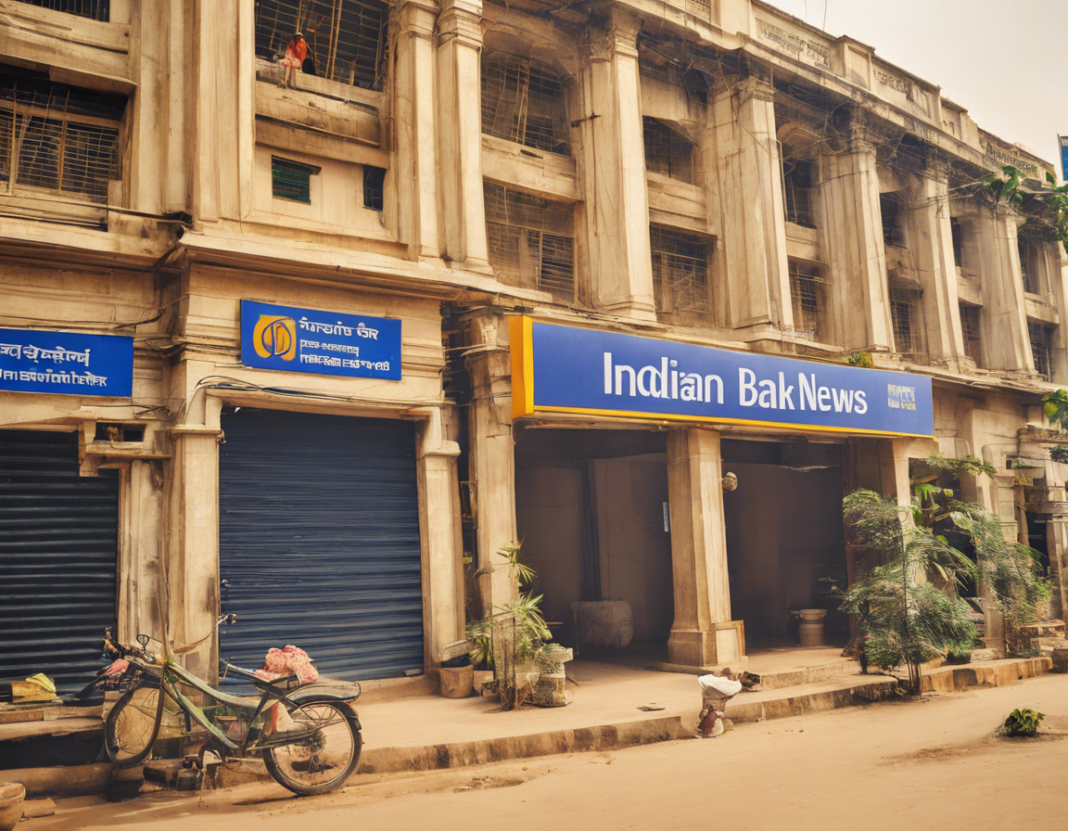The banking sector in India holds a pivotal role in the country’s economy. With constant changes, updates, and advancements, staying informed about the latest Indian bank news is essential for clients, investors, and individuals interested in financial matters. In this article, we will explore the recent developments in the Indian banking sector, covering a wide range of topics including digital transformation, regulatory changes, mergers, and more.
Digital Transformation in Indian Banks
Digital transformation has been a key focus for Indian banks in recent years. Digital payment solutions have gained significant traction, with the introduction of Unified Payments Interface (UPI) transforming the way payments are made in the country. Banks are increasingly investing in technology to enhance customer experiences and streamline operations. Mobile banking apps have become more sophisticated, offering a range of services from fund transfers to investment options.
Key Highlights:
- Integration of Artificial Intelligence (AI) and Machine Learning (ML) in customer service and fraud detection
- Adoption of Blockchain technology for secure and transparent transactions
- Implementation of Robotic Process Automation (RPA) for operational efficiency
- Expansion of online account opening and loan application processes
Regulatory Changes Impacting Indian Banks
Regulatory bodies play a crucial role in shaping the functioning of banks in India. The Reserve Bank of India (RBI) regularly introduces new policies and guidelines to ensure financial stability and protect the interests of stakeholders. Recent regulatory changes have had a significant impact on how banks operate and serve their customers.
Recent Developments:
- Introduction of Prompt Corrective Action (PCA) framework to monitor and regulate banks’ performance
- Implementation of stricter Know Your Customer (KYC) norms to prevent money laundering and fraud
- Guidelines for resolution of stressed assets to tackle Non-Performing Assets (NPAs)
- Amendments in capital adequacy norms to strengthen banks’ financial health
Mergers and Acquisitions in the Indian Banking Sector
In an effort to enhance efficiency and scale operations, mergers and acquisitions have become common in the Indian banking sector. Consolidation of banks through mergers aims to create stronger entities that can withstand market challenges and serve customers better.
Noteworthy Mergers:
- Merger of Bank of Baroda, Vijaya Bank, and Dena Bank to form the second-largest public sector bank in India
- Amalgamation of Punjab National Bank, Oriental Bank of Commerce, and United Bank of India to create the second-largest public sector bank by branch network
- Acquisition of Capital First by IDFC Bank to establish IDFC First Bank, offering a diverse range of financial products
Impact of COVID-19 on Indian Banks
The COVID-19 pandemic has brought unprecedented challenges for banks worldwide, and Indian banks are no exception. The economic repercussions of the pandemic have led to changes in lending patterns, credit quality, and customer behavior. Banks have had to adapt quickly to navigate the uncertainties brought about by the health crisis.
Key Challenges Faced:
- Rise in Non-Performing Assets due to economic slowdown and payment moratoriums
- Increased demand for digital banking solutions as physical branches faced restrictions
- Focus on risk management and business continuity planning to ensure operational resilience
- Support for customers through loan restructuring and financial assistance programs
Future Outlook for Indian Banks
Looking ahead, Indian banks are poised for further evolution and progress. The industry is expected to witness continued digital innovation, regulatory reforms, and strategic partnerships. With a focus on financial inclusion and technology-driven solutions, banks in India are gearing up to cater to the diverse needs of their customers in a rapidly changing landscape.
Areas of Growth:
- Expansion of financial services in rural and underserved areas through technology
- Emphasis on cybersecurity measures to protect customer data and transactions
- Integration of environmental, social, and governance (ESG) principles in banking operations
- Collaboration with fintech startups for product innovation and delivery
FAQs about Indian Bank News and Updates:
-
What are the recent trends in digital banking in India?
Recent trends in digital banking include the adoption of AI and ML, expansion of mobile banking apps, and the implementation of Blockchain technology for secure transactions. -
How have regulatory changes impacted Indian banks?
Regulatory changes have influenced banks through frameworks like PCA, KYC norms, and guidelines for resolving stressed assets, aiming to enhance financial stability and transparency. -
Which mergers have taken place in the Indian banking sector recently?
Notable mergers include Bank of Baroda, Vijaya Bank, and Dena Bank; Punjab National Bank, Oriental Bank of Commerce, and United Bank of India; and IDFC Bank acquiring Capital First. -
What challenges have Indian banks faced due to COVID-19?
Challenges include a rise in NPAs, increased demand for digital solutions, risk management concerns, and the need for loan restructuring to support customers. -
What is the future outlook for Indian banks?
The future outlook includes growth in rural financial services, cybersecurity enhancements, ESG integration, and partnerships with fintech startups for innovation.
With a dynamic landscape characterized by technological advancements, regulatory changes, and market dynamics, staying abreast of the latest news and updates in the Indian banking sector is vital for stakeholders seeking to navigate the evolving environment effectively.




